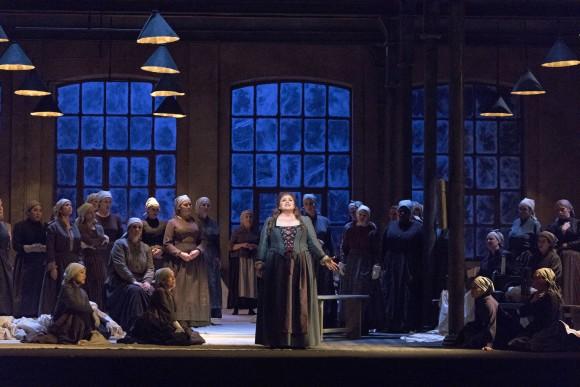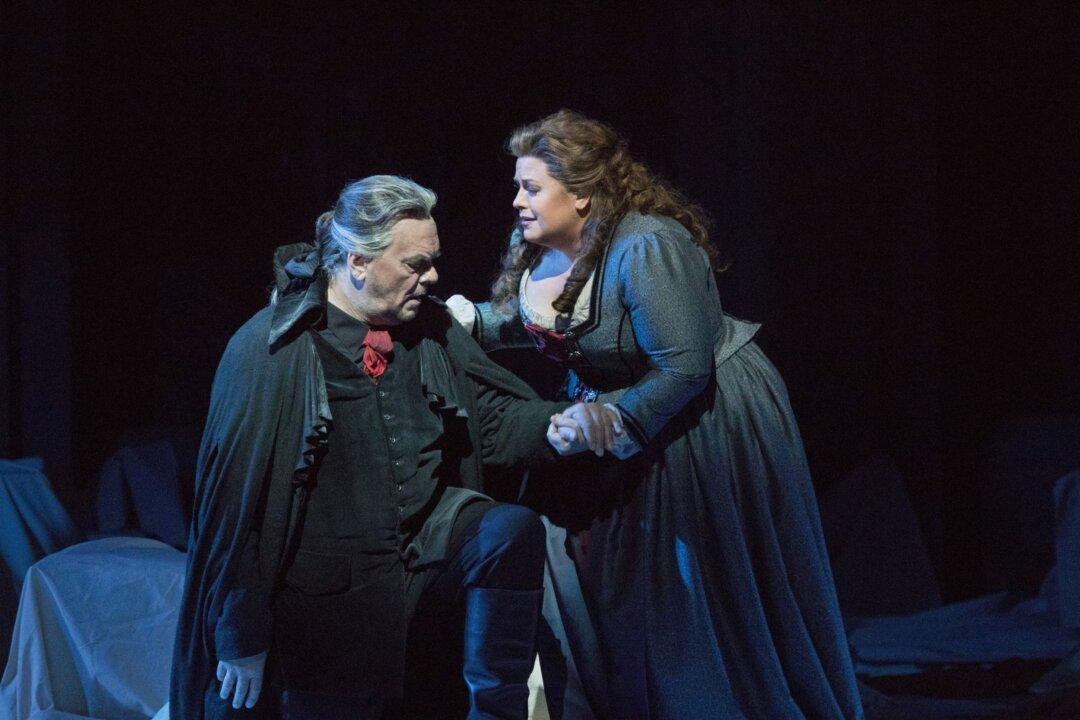NEW YORK—Richard Wagner’s “Der Fliegende Holländer” (“The Flying Dutchman”) is back at the Metropolitan Opera with a strong cast headed by Michael Volle in the title role. Yannick Nézet-Séguin, the music-director designate of the Met, conducted with style.
The Plot

Amber Wagner as Senta in Wagner's Der Fliegende Holländer. Richard Termine/Metropolitan Opera






